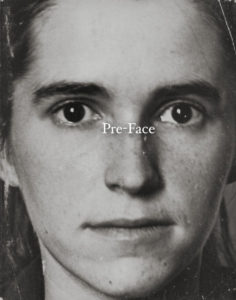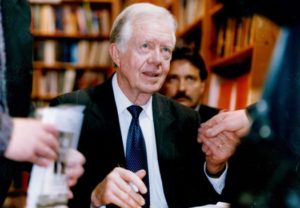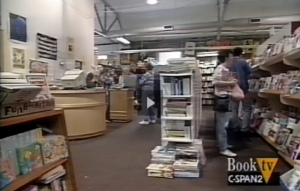David Wilk interviews Joanna Penn of The Creative Penn
September 11, 2017 by David
Filed under Ebooks and Digital Publishing, PublishingTalks, The Future
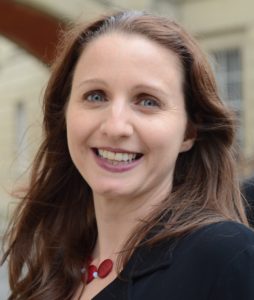 Publishing Talks began as a series of conversations with book industry professionals and others involved in media and technology, mostly talking about the future of publishing, books, and culture. As every media business continues to experience disruption and change, I’ve been talking with some of the people involved in our industry about how publishing might evolve as it is affected by technology and the larger context of culture and economics.
Publishing Talks began as a series of conversations with book industry professionals and others involved in media and technology, mostly talking about the future of publishing, books, and culture. As every media business continues to experience disruption and change, I’ve been talking with some of the people involved in our industry about how publishing might evolve as it is affected by technology and the larger context of culture and economics.
I’ve now expanded this interview series to include conversations that go beyond the future of publishing. I’ve talked with editors and publishers who have been innovators and leaders in independent publishing in the past and into the present, and will continue to explore the ebb and flow of writing, books, and publishing in all sorts of forms and formats, as change continues to be the one constant we can count on.
The rise of self publishing authors is one of the most significant elements of change in the modern publishing landscape. Technology is one element – ebooks and digital short run printing (aka print on demand) give authors access to low cost production and distribution capabilities. The internet as a disseminator of information has helped to democratize publishing skills and knowledge, and generally to drive down the costs of production for books of all kinds. Disruption among traditional publishers has also helped by creating a large pool of experienced freelancers that can provide high level publishing services at reasonable cost.
And crucially, a large group of successful do-it-yourself publishing authors and publishing professionals have become teachers and guides, assisting writers at every level of experience, of every kind of writing, to themselves learn the ropes of what was once a somewhat esoteric set of skills and knowledge. And because change is such a prominent feature in the modern publishing environment, no author can afford to not be in a continual state of learning. The advisors, consultants and teachers who both know “how to do it” and how to keep learning have become tremendously important resources for a wide range of authors.
One of the best of the brightest of these is UK-based writer Joanna Penn. Her fantastic website, The Creative Penn, has become one of the largest of its kind in the literary world. Joanna is an award-winning, best-selling thriller writer and she writes really good nonfiction books for authors. She is now a publisher too (Curl Up Press), a speaker, and of course, an entrepreneur. She’s endlessly energetic, smart, perceptive, and gives consistently great advice. I am a regular reader of her work, and refer to it frequently on the self publishing blog I operate myself.
I could not pass up the opportunity to speak with Joanna about her work as a writer and self publishing guide. It was great fun for me, and I am sure will be for my listeners as well. Even if you never self-publish your work, it is well worth hearing what she has to say. At least for me, the time flew by, and we could easily have talked much longer. Thank you Joanna!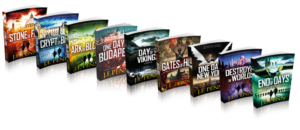

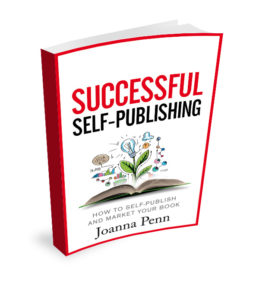
Podcast: Play in new window | Download
Jeremy Brecher: Against Doom: A Climate Insurgency Manual
September 1, 2017 by David
Filed under Non-Fiction, WritersCast
 Against Doom: A Climate Insurgency Manual – Jeremy Brecher – PM Press – Paperback – 978-1-62963-385-5 – $12.95 – 128 pages – April 2017 – ebook versions available at lower prices.
Against Doom: A Climate Insurgency Manual – Jeremy Brecher – PM Press – Paperback – 978-1-62963-385-5 – $12.95 – 128 pages – April 2017 – ebook versions available at lower prices.
For years leading up to the 2016 election, when Americans alarmingly voted (somehow) for a president who maintains the bizarre fiction that climate change is a hoax invented by the Chinese, we have been heavily propagandized and brainwashed by inaccurate and misleading information about climate science supplied by corporate financed sources. Only half of us believe that climate change is caused by human activities, something that scientists overwhelmingly recognize is true, based on actual data.
Still, millions of our fellow citizens do understand the danger to human life and our natural environment by human caused climate change. So many of us are searching for ways to make a real impact on the future through concrete actions. The scale and scope of what we face, and the impediments we face daily to rational thought and action are daunting and sometimes overwhelming.
We need tools – both to understand what is happening in our world, and to help us act positively to make change and to oppose those who seek to diminish and undermine our efforts.
Jeremy Brecher is a long time organizer and thinker about social change. He has been involved in environmental issues for almost thirty years. He puts much of what he has learned into Against Doom, this short but powerful book that I can recommend to any and all of us who want to join the global movement for change. What he calls “climate insurgency” is a strategy for using people power to realize our common interest in protecting the climate. It uses mass, global, nonviolent action to challenge the legitimacy of public and corporate officials who are perpetrating climate destruction. This may be our best hope for saving the planet and human civilization, while at the same time helping change that civilization for the better.
Against Doom: A Climate Insurgency Manual provides guidance in how we can put this strategy into action and succeed. It’s an essential read now. Listen to my optimistic conversation with Jeremy and go buy this book!
Jeremy Brecher is the author of more than a dozen books on labor and social movements, including Save the Humans? Common Preservation in Action and the now-classic labor history Strike!, recently published in a revised fortieth anniversary edition by PM Press. He has been writing about climate protection since 1988, most recently in his book Climate Insurgency: A Strategy for Survival (2015). Jeremy is a cofounder of the Labor Network for Sustainability and lives in rural northwest Connecticut. Jeremy was arrested in the early White House sit-ins against the Keystone XL pipeline.
There are many organizations and websites working on climate change insurgency efforts. Visit Jeremy’s own site for a good introduction or go here for a list of reputable climate change nonprofit organizations you can work with.

Podcast: Play in new window | Download
Madeleine Blais: To the New Owners-A Martha’s Vineyard Memoir
August 20, 2017 by David
Filed under Non-Fiction, WritersCast
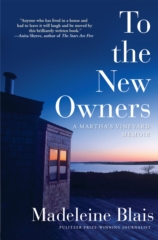 To the New Owners: A Martha’s Vineyard Memoir – Madeleine Blais – Atlantic Monthly Press – Hardcover – 978-0-8021-2657-3 – $26.00 – 272 pages – July 2017 (ebook versions available at lower prices)
To the New Owners: A Martha’s Vineyard Memoir – Madeleine Blais – Atlantic Monthly Press – Hardcover – 978-0-8021-2657-3 – $26.00 – 272 pages – July 2017 (ebook versions available at lower prices)
Madeleine Blais is a truly wonderful writer – she began her writing career as a journalist, now teaches journalism at the University of Massachusetts, and won a Pulitzer Prize for her 1994 book In These Girls Hope is a Muscle. But I had never really read her work before my friend George Gibson, knowing I had spent time on Martha’s Vineyard, recommended this book to me. Reading this book was a great experience for me, one of those times when I found myself reading sections aloud to my wife, who spent most of her life going to Martha’s Vineyard each summer. This book is full of beautiful passages about place, family, and the magical experiences that summer vacations engender for so many of us.
Back in the 1970s, Madeleine Blais married into the Katzenbach family, and with them, their somewhat rustic vacation house on Martha’s Vineyard. Located on an old one-lane dirt road, the house was more a shack, without electricity or running water. But for spending old fashioned quiet vacations decompressing from daily life, the house was ideal, and very representative of the kinds of places that were then common in traditional east coast vacation spots.
The house was near Tisbury Great Pond, facing the ocean and open to the sky, and over the years, the old shack was rebuilt and modernized, but the more or less rustic lifestyle of the family and their visitors remained a constant. There was no heat, no TV, and no telephone, and typically terrible cell service. But as Blais documents, the days were marked by time spent on the beach and on the Vineyard’s beautiful waters, meals prepared and enjoyed with extended family and their many visiting friends, all logged in a series of notebooks made by the family over the decades – almost half a century of family stories to be preserved and loved.
But life is full of changes and with the passing of the original family owners, in 2014, the house was sold. In To the New Owners, Madeleine Blais tells some of these stories of the house and her family’s life within it, and stories of the Vineyard, including some of its recent history, and some of the people whose visits have now made it so well known.
But this book is really about the places that matter in our lives, the power of place to ground and center our lives and the importance of memory and stories to help us understand who we are.
While this book is a memoir about this one distinctive east coast island, it will resonate for the many of us who have experienced well-loved places that have changed over time. Change is the constant feature of modern life, and family summer places like this one may be disappearing forever. New generations will find their own ways to understand and appreciate the places around which they build their histories. Those of us who have had the pleasure of experiencing Martha’s Vineyard will likely love this book as much as we love the island itself, and remind us of our own stories and the memories that keep us whole.
Madeleine Blais was a reporter for the Miami Herald for years before joining the faculty of the School of Journalism at the University of Massachusetts. She is the author of In These Girls, Hope Is a Muscle, Uphill Walkers, and The Heart Is an Instrument, a collection of her journalism. She lives in Amherst, Massachusetts.
Aside from being a fine writer, Madeleine also tells great stories, and gave us a wonderful interview. Special thanks to George Gibson for recommending this excellent book to me.
“For anyone who has ever been curious about life on the Vineyard, or fantasized about settling in, Blais offers a diverting portrait . . . Blais has stitched together [the memoir] from the writings and stories of others, as well as her own wistful, often wry observations . . . Throughout, Blais exhibits a veteran reporter’s instinct for even-handedness.”―Boston Globe
Podcast: Play in new window | Download
Patrick Lynch: A Field Guide to Long Island Sound
August 4, 2017 by David
Filed under Non-Fiction, WritersCast
 A Field Guide to Long Island Sound: Coastal Habitats, Plant Life, Fish, Seabirds, Marine Mammals, and Other Wildlife – Patrick Lynch – Yale University Press – paperback (flexibind) – $27.50 – 9780300220353 – 416 pages
A Field Guide to Long Island Sound: Coastal Habitats, Plant Life, Fish, Seabirds, Marine Mammals, and Other Wildlife – Patrick Lynch – Yale University Press – paperback (flexibind) – $27.50 – 9780300220353 – 416 pages
I grew up around Long Island Sound, and have lived near it most of my life. I have always loved the shoreline and the water, the birds, marine life and the landscapes of the coast, and I have enjoyed its beauty and diversity, and even spent time as an amateur naturalist studying its ecosystems, but it was not until I read Pat Lynch’s comprehensive guidebook that I felt I fully understood this magnificent environment.
This book is beautifully illustrated, and full of fascinating and readable information about the natural history of Long Island Sound, and its varying New York and Connecticut coastlines. This estuarine body of water is surrounded by millions of people – and threatened not only by over-population and industry, but now by climate change as well. While we have made a great deal of progress in recent decades in improving the ecological health of our waters, we must increase our level of involvement now, as climate change will have tremendous impacts on the all important marshlands of the Sound and other coastal zones.
Long Island Sound comprises a diverse collection of marine, estuarine, and terrestrial ecosystems, and is located in one of the most densely populated regions in the United States. The Sound and its coastlines are home not only to myriad species of plants and animals—from shorebirds and turtles to whales, seals, and fish—but also to more than twenty million people.
Author and illustrator Patrick Lynch has put together a thoroughly engaging guide to this incredibly complex set of environments. The book includes maps, photographs, and drawings, and covers every aspect of the Sound’s various ecosystems and locales.
On reading the book, I felt that I learned more than I have done in a lifetime of living on or near the Sound and for me, it is now an indispensable companion whenever I walk the coastline or am lucky enough to get out on the water near where I live. If you live anywhere near New York or Connecticut, this book will help you fully understand the importance and breadth of the Sound environments. And even if you live in another part of the country, Long Island Sound is well worth learning about, just as any other great natural area would be. I only wish we could have had this conversation at the beach or some other interesting outdoor venue, but the Sound is too windy for making intelligible recordings.
Patrick J. Lynch is a former senior digital officer in Yale University’s Office of Public Affairs and Communications and is an award-winning author, designer, illustrator, and photographer. He lives in North Haven, Connecticut. He was kind enough to spend some time with me in New Haven recently to talk about this book and his sense of the future of Long Island Sound.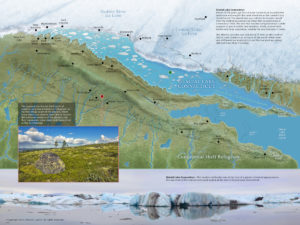
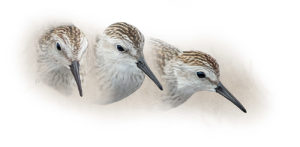
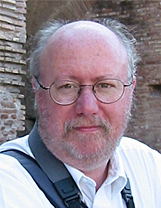
Podcast: Play in new window | Download
David Wilk interviews Steve Clay of Granary Books
July 26, 2017 by David
Filed under Publishing History, PublishingTalks
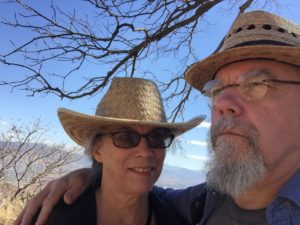 Publishing Talks began as a series of conversations with book industry professionals and others involved in media and technology about the future of publishing, books, and culture. As we continue to experience disruption and change in all media businesses, I’ve been talking with some of the people involved in our industry about how publishing might evolve as our culture is affected by technology and the larger context of civilization and economics.
Publishing Talks began as a series of conversations with book industry professionals and others involved in media and technology about the future of publishing, books, and culture. As we continue to experience disruption and change in all media businesses, I’ve been talking with some of the people involved in our industry about how publishing might evolve as our culture is affected by technology and the larger context of civilization and economics.
I’ve now expanded the series to include conversations that go beyond the future of publishing. I’ve talked with editors and publishers who have been innovators and leaders in independent publishing in the past and into the present, and will continue to explore the ebb and flow of writing, books, and publishing in all sorts of forms and formats, as change continues to be the one constant we can count on.
For the past several years, I’ve been talking to editors and publishers of independent presses about their work, including a number of important literary publishers.
Steve Clay is an old friend, who has been involved with poetry, art and publishing for about the last forty years or so. Steve is the publisher of Granary Books, through which he has done some extraordinary work with an incredible range of poets, artists and crafts people. He has been the instigator of literally hundreds of important standout works of art.
He calls himself an editor, curator, and archivist specializing in the American art and literature of the 1960s,’70s, and ’80s. Steve is also the author, with Rodney Phillips, of A Secret Location on the Lower East Side: Adventures in Writing 1960-1980 (1998) and editor, with Jerome Rothenberg, of A Book of the Book: Some Works & Projections about the Book & Writing. He lives in New York City.
But this outline of his work barely scratches the surface of Steve’s work. In our conversation, I tried to give him the opportunity to talk broadly about the scope of his creative work. He is truly an exemplar of the powerful nexus of writing, editing, and publishing, the “making public” work so critical to art and those who make and experience it. His work is a gift I urge you to spend some time to discover and explore on your own.
A good start is to visit the Granary Books website. Then go to the absolutely essential From a Secret Location: Poetry, Little Mags, Small Presses, and transient documents from the mimeo era and beyond.
There is another useful interview with Steve conducted by the brilliant poet Bill Corbett for the Paris Review here.
When Columbia University, which purchased the Granary Books archive, opened their first exhibit from the Granary archives in 2015, Mark Dimunation, chief of the Rare Book and Special Collections Division of the Library of Congress said about Steve: “Beginning in 1985 he has concocted a mix of poets, artists, printers and craftspeople whose work defines an era and fundamentally shapes our understanding of the artists’ book.”
Enjoy!
Pre-Face image from A Secret Location on the Lower East Side: Adventures in Writing, 1960–1980 (The New York Public Library and Granary Books, 1998), based on Bernadette Mayer, Studying Hunger (New York and Bolinas, CA: Adventures in Poetry and Big Sky, 1975). Cover photograph of the author by Ed Bowes.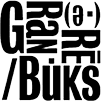
Podcast: Play in new window | Download
Jane Ziegelman and Andrew Coe: A Square Meal: A Culinary History of the Great Depression
July 17, 2017 by David
Filed under Non-Fiction, WritersCast
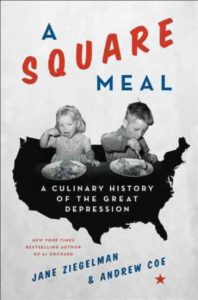 A Square Meal: A Culinary History of the Great Depression – Jane Ziegelman and Andrew Coe – HarperCollins – paperback now available – 9780062216427 – 336 pages – $15.99 – ebook versions available at lower prices.
A Square Meal: A Culinary History of the Great Depression – Jane Ziegelman and Andrew Coe – HarperCollins – paperback now available – 9780062216427 – 336 pages – $15.99 – ebook versions available at lower prices.
First, let me say that this is one of the most interesting, readable and thought-provoking works of American history I have read in a long time. It’s interesting to think about how two writers can work together to create a consistent and compelling authorial voice – Andrew and Jane have done that brilliantly. One must assume they have a very special marriage that enables them to both collaborate and live happily together.
If you are interested in food and how the American palate has changed over time, this book will certainly have much to offer. But I think the story here is broader than it may first appear. It’s not just a “culinary history” but a comprehensive social history of one of the most important periods of American life told through the issues surrounding food and nutrition in a challenging time.
Yes, it is “an in-depth exploration of the greatest food crisis the nation has ever faced – and how it transformed America’s culinary culture,” but I think the larger story is that this book uses food as the lens to through which to view how Americans lived during our greatest economic and cultural crisis.
History writing that brings the past to life and engages us in the human dimensions of the big moments of the past is real storytelling. This kind of writing helps us understand and sympathize with the people who came before us. It makes us better able to deal with our own crises, of which there are indeed many.
So this book is important whether food is “your thing” or not. I’d recommend reading it no matter your specific interests, just because it will make you think, will make you care, and will help you to feel that the past really is always prologue. It was a great pleasure to have the opportunity to talk in person with Jane and Andrew about A Square Meal.
Jane Ziegelman is the director of the Tenement Museum’s culinary center and is founder and director of Kids Cook!, a multiethnic cooking program for children. Her writing on food has appeared in numerous publications, and she is the coauthor of Foie Gras: A Passion.
Andrew Coe is a writer and independent scholar specializing in culinary history, and the author of Chop Suey: A Cultural History of Chinese Food in the United States, which was a finalist for a James Beard Award. He appeared in the documentaries The Search for General Tso and Eat: The Story of Food. Jane and Andrew live in Brooklyn, New York. And recently, A Square Meal was announced the winner of the 2017 James Beard Award for best nonfiction book of the year.
NPR’s Fresh Air did a wonderful interview (called “Creamed, Canned and Frozen”) with Jane and Andy about this book in August, 2016. And I interviewed Andy about his book, Chop Suey for Writerscast a few year ago.
Photo of the authors by Sasha Maslov for The New York Times.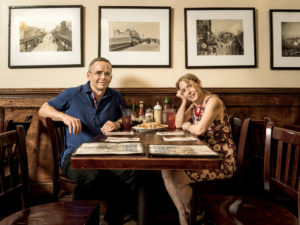
Podcast: Play in new window | Download
David Wilk interviews Infinite Ideas publisher Richard Burton
July 5, 2017 by David
Filed under Ebooks and Digital Publishing, Publishing History, PublishingTalks, The Future
 Publishing Talks began as a series of conversations with industry professionals about the future of publishing, books, and culture. As we continue to experience disruption and change in all media businesses, I’ve been talking with some of the people involved in our industry about how the book business might evolve as our culture is continues to be affected by technology and macro-economic factors.
Publishing Talks began as a series of conversations with industry professionals about the future of publishing, books, and culture. As we continue to experience disruption and change in all media businesses, I’ve been talking with some of the people involved in our industry about how the book business might evolve as our culture is continues to be affected by technology and macro-economic factors.
Over the years I’ve expanded this series to include conversations that go beyond the future of books and publishing. I’ve talked with editors, publishers, booksellers and others who have been innovators and leaders in independent publishing, and will continue to explore the ebb and flow of writing, books, and publishing in all sorts of forms and formats, as change continues to be the one constant we can count on.
I continue to be interested in the ways that publishers might reinvent themselves in order to be able to succeed in a challenging sales and marketing environment. Most publishers acknowledge that the business model that worked for so many years, which relied on bookstores and other retailers to stock a wide range of books, simply does not work now that we are in the age of Amazon.
In fact, there are distinct, though perhaps short term, advantages to a consolidated market – lower cost of sales, better inventory management, and lower returns rates, principally. But having ceded direct knowledge of actual customers to intermediaries, foregoing the meaning of their brands for consumers, and working diligently to protect existing pricing models, all pose difficulties to the future business proposition for commercial publishers.
Some publishers have decided to change their models to address these concerns. One who has found a way to adapt to a changing book selling environment is Infinite Ideas, an innovative publisher based in Oxford, UK. Founded and operated by Richard Burton to publish business content, Infinite Ideas has literally reinvented itself over the past few years, and now focuses on books about wine and spirits, with a digital printing underpinning, and a strong direct to consumer and special markets focus.
Publishers and publishing observers will find my conversation with Richard to be of interest, and the thinking that led to this model may demonstrate some valuable lessons for anyone connected to books and publishing today.
Aside from having had success in publishing over an interesting and varied career, Richard has a background in literature. He holds a PhD on the early poetry of W.B. Yeats, and recently authored a significant biography of the important Northumbrian poet, Basil Bunting, A Strong Song Tows Us, which was published by Infinite Ideas in the UK and by Prospecta Press in the US.
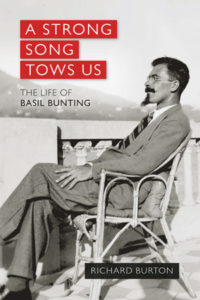
Podcast: Play in new window | Download
Jessica Anya Blau: The Trouble with Lexie
June 21, 2017 by David
Filed under Fiction, WritersCast
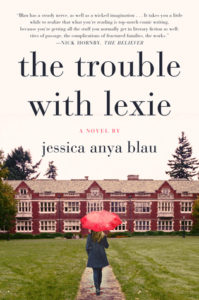 The Trouble with Lexie: A Novel – Jessica Anya Blau – HarperCollins – paperback – 9780062416452 – 336 pages – $14.99 – ebook versions available at lower prices.
The Trouble with Lexie: A Novel – Jessica Anya Blau – HarperCollins – paperback – 9780062416452 – 336 pages – $14.99 – ebook versions available at lower prices.
I interviewed Jessica Anya Blau in 2014 about her previous book, The Wonder Bread Summer, which I found to be wonderfully entertaining and fun to read. Her latest novel, The Trouble with Lexie, displays Blau’s signature wit and fast paced story telling. But it is a complicated book with a seriously flawed and emotionally scarred main character, who faces a very challenging situation in her life.
The book’s opening is pretty compelling (as book openings should be!):
The problem wasn’t so much that Lexie had taken the
Klonopin. And it wasn’t even really that she had stolen
them . . . the problem, as Lexie saw it, was that she had
fallen asleep in the bed of the owner of the Klonopin.
And the owner of the Klonopin was the wife of her lover.
Lexie is an engaging and sometimes irritating main character. As we watch her try to figure out her life, I suspect most readers will want to reach into the pages of the book and tell Lexie directly when she is about to make a big mistake. But she is on her own path and we must follow along as she makes her way toward and through disaster.
Lexie James makes for a terrific main character. She is funny and thoughtful, comes from a decidedly untraditional family, and as a relatively young adult, has figured out how to conquer her panic attacks. She is also engaged to a truly nice guy, and has a job as a counselor at a prestigious private school (presumably in Massachusetts).
But with the wedding fast approaching, Lexie is faced with doubts about her future and who she really wants to be. She falls into a wild love affair with an older married man, a typically bad decision that readers know will have serious consequences.
Most of us have been in similarly fraught situations at one time or another, always convincing ourselves that we’re different and “everything will work out” when we know that is not really true.
Lexie’s story is an example of that central human foible, a form of hubris that makes us believe we can beat all the odds when we want something so much we know we cannot possibly attain. What makes this novel work is that despite knowing that she is headed for a cliff, we end up liking Lexie so much that we want to believe there is a better future for her, and by extension for ourselves. You will have to read the book to find out how this one turns out, no spoilers here.
I very much enjoy talking to Jessica about her books, her characters and stories, and hope you will find our conversation as enjoyable and entertaining as it was for me.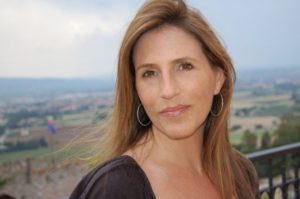
Podcast: Play in new window | Download
Eugene Mirabelli: Renato After Alba (a novel)
June 13, 2017 by David
Filed under Fiction, WritersCast
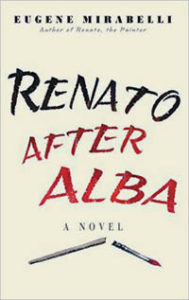 Renato After Alba – Eugene Mirabelli – McPherson & Company – hardcover – 978-1-62054-026-8 – 192 pages – $24.00
Renato After Alba – Eugene Mirabelli – McPherson & Company – hardcover – 978-1-62054-026-8 – 192 pages – $24.00
Eugene Mirabelli has been writing novels since the late 1950s. His first book, The Burning Air, was published by Houghton Mifflin in 1959. Over the years, his style has changed and matured as he developed his voice as a novelist. I was introduced to Gene’s work by his current publisher, Bruce McPherson, who is the kind of publisher who hands you a book and says, “you need to read this.” Over the years, I have made many literary discoveries by following Bruce’s recommendations.
Renato After Alba is the sequel to Gene’s 2012 novel, Renato, the Painter. It is warm, painful, and and highly personal. This book is called a grief novel for a reason. Do not be afraid to pick up this short novel, and dive into this writer’s exploration of sadness and beautiful sorrow. It is moving and entertaining, and revelatory, and as the best fiction does, will make you feel deep emotion in a transformative way.
Artist Renato Stillamare’s beloved wife of fifty years dies unexpectedly, leaving him heartbroken and dazed. The novel is a pastiche of fragments, much like a collage, with the artist trying to discover where all the pieces of his life and memories belong. He recounts stories of the members of his Sicilian-American family, conversations with friends, family members, and even new people in his life. All of it is an effort to rebuild a life without Alba, or with the memory of her, in a way that will enable Renato to continue living. There is humor, and pain and discovery, all the things in life that make it worth living, and a book well worth reading.
One of the pleasures Writerscast has brought me is the opportunity to read great books and to talk to their authors about writing, art and life. Meeting Gene Mirabelli through his writing and in conversation has been a singular pleasure for me.
“For anyone who loves the work of James Salter or William Trevor, Eugene Mirabelli is another writer to treasure, and Renato After Alba is one of the best books I’ve read in ages — a beautiful, profound and exhilarating novel about what sustains us in the face of inevitable loss.” — Elizabeth Hand, author of Hard Light and Generation Loss
As Robert Gray reported in Shelf Awareness:
November 4, 2016 was proclaimed Eugene Mirabelli Day in Albany, N.Y. In her proclamation, Mayor Kathy M. Sheehan noted that in his most recent book, Renato After Alba–a sequel to his 2012 novel Renato, the Painter (both published by McPherson & Co.)–the 85-year-old author “touches upon universal aspects of human existence by creating lovably flawed characters who subtly express the full range of human emotion and experience, from great joy to crushing loss, from deep love of life to rage against the inevitability of death. All written with clarity and cleverness and craft.”
Eugene Mirabelli is the author of nine highly acclaimed novels — five of which feature members of Renato’s extended family and his friends. Visit Eugene’s website is here. Publisher McPherson & Co. website is here.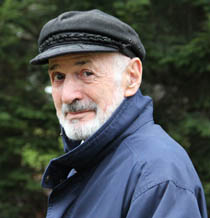
Podcast: Play in new window | Download
David Wilk interviews Hungry Minds Bookstore Founder David Unowsky
May 31, 2017 by David
Filed under Publishing History, PublishingTalks
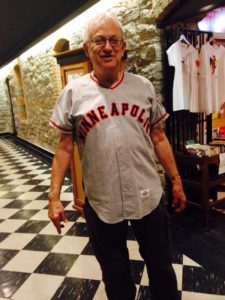 Publishing Talks began as a series of conversations with book industry professionals about the future of publishing, books, and culture. As we continue to experience disruption and change in all media businesses, I’ve been talking with some of the people involved in our industry about how the book business might evolve as our culture is continues to be affected by technology and macro-economic factors.
Publishing Talks began as a series of conversations with book industry professionals about the future of publishing, books, and culture. As we continue to experience disruption and change in all media businesses, I’ve been talking with some of the people involved in our industry about how the book business might evolve as our culture is continues to be affected by technology and macro-economic factors.
I’ve now expanded this series to include conversations that go beyond the future of books and publishing. I’ve talked with editors, publishers, booksellers and others who have been innovators and leaders in independent publishing, and will continue to explore the ebb and flow of writing, books, and publishing in all sorts of forms and formats, as change continues to be the one constant we can count on.
For the past several years, I’ve been talking to editors and publishers of independent presses about their work, including a number of important literary publishers. In this conversation, I am speaking with an old friend and colleague, David Unowsky, founder of the outstanding St. Paul bookstore, the Hungry Mind, which evolved into many other book related ventures, including a literary review and a successful independent press.
The store eventually sold its name to help stay in business in the face of ever increasing financial pressures, and ultimately, under its new name, Ruminator Books, closed in 2004. Which means it was in business for over 30 years, and was for most of that time an incredibly important place, not only to Twin Cities residents, but for the many writers and publishers whose work the store supported, and importantly provided an entry point into the book business for many individuals who have gone on to a wide variety of positions in the book industry.
The Hungry Mind was and remains for many, a special place, and David Unowsky was its beating heart and soul. I’m really pleased to have the chance here for David to talk about his work as a bookseller, communitarian, publisher and entrepreneur. David and “the Mind” – and all the wonderful people and books that passed through its doors – are central to our understanding of what might eventually be considered a “golden age” of books in our country.
Jan. 12, 1994: Former President Jimmy Carter made an appearance at the Hungry Mind Bookstore in St. Paul to sign his latest book,”Turning Point: A Candidate, a State and a Nation Come of Age.” In the book, Carter describes how his first race in the pre-civil-rights South almost was taken away by a political boss.
Photo: Minneapolis Star Tribune.
Screen shot from a 1998 C-Span program about Hungry Mind
Podcast: Play in new window | Download


